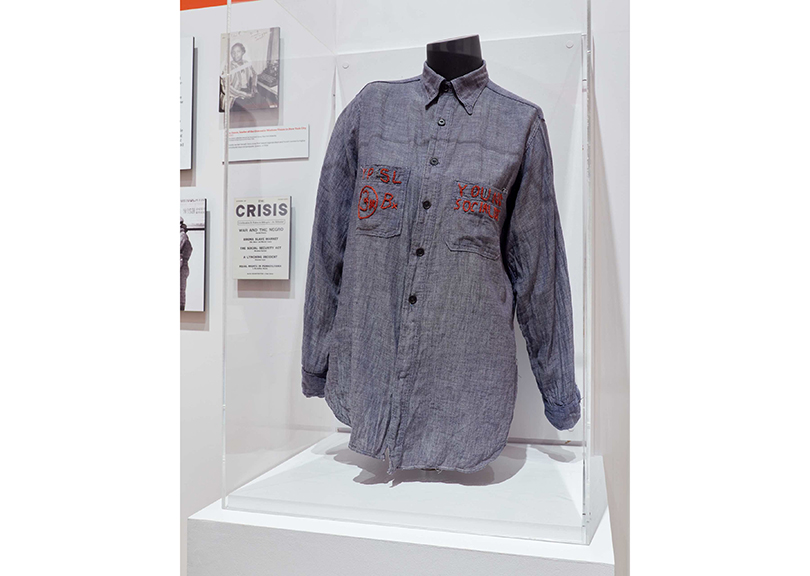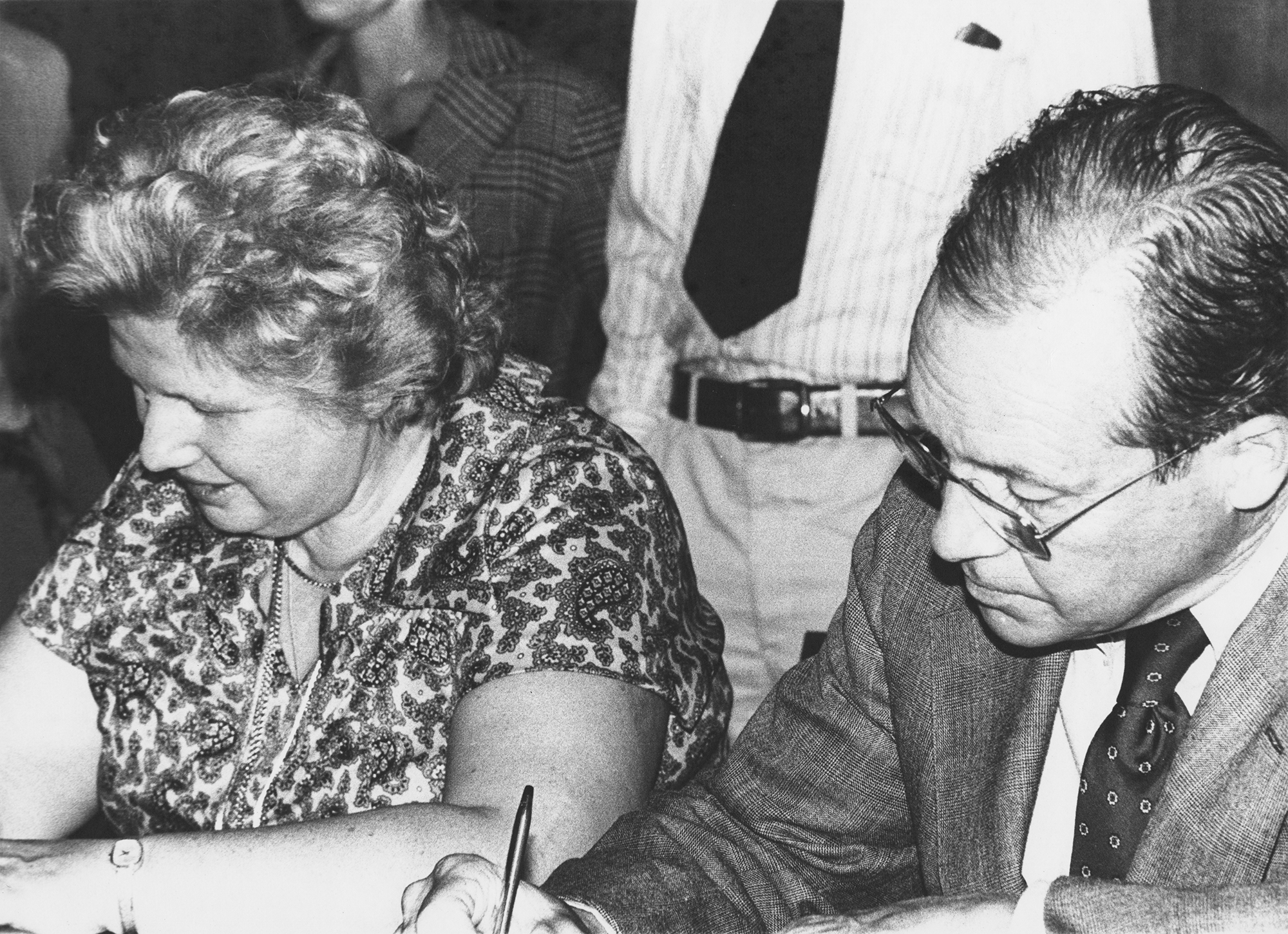
A blue denim work shirt adorned with a red insignia is among the historic activist objects on view in City of Workers, City of Struggle: How Labor Movements Changed New York at the Museum of the City of New York in Manhattan. In the 1930s, it was worn by a teenaged Estelle M. Horowitz to show her membership in the Young People’s Socialist League. This involvement in workers’ rights was the beginning of a lifelong passion for labor activism. Later when she was a professor of economics at Pratt Institute, Horowitz continued her avid support for labor, including as a pivotal organizer of the faculty union.
In 1957, long after her affiliation with the Young Socialists had ended, she joined the faculty as an adjunct associate economics professor. She later led the faculty to the signing of their first collective bargaining agreement on September 1, 1973, and subsequently served as the union’s first president. She remained on staff through 1991, retiring as a professor of economics and then returning occasionally as a visiting associate professor. She also served as the head of the United Federation of College Teachers (UFCT). Horowitz died in 2016, leaving a legacy of activism that was centered on her decades at Pratt.

In an essay for the Upper East Side publication Our Town, her daughter Janice Horowitz writes that “[f]rom Pratt, Estelle was able to help other professors nationwide as head of the UFCT.” She recalls how decades after her mother’s involvement with the Young Socialists, the movement’s leader, Norman Thomas, a former Presbyterian minister and six-time Socialist Party presidential candidate, came to the Pratt campus to speak. “By this time, Thomas was suffering from crippling arthritis, and his eyesight and hearing were failing, but he still kept up his speaking schedule,” Janice writes. “He made a joke of his ailments: slowly reaching the podium, he said to his audience, ‘Creeping socialism!’ I can just hear my mother responding back: ‘Creep On!’”
City of Workers, City of Struggle continues through January 5, 2020, and features Horowitz’s contributions in the context of New York labor movements. A garment workers’ union banner, film footage of strikes, 1960s leaflets from organizing hospital workers, and other rare objects join the materials related to Horowitz’s life to reveal the long history of labor activism in the city.
Images: Installation view of Estelle M. Horowitz’s Young People’s Socialist League shirt in City of Workers, City of Struggle: How Labor Movements Changed New York (courtesy Museum of the City of New York); Estelle M. Horowitz signing the UCFT contract with Richardson Pratt, president of Pratt Institute, in 1978 (photo by Jamie Hankin, courtesy Pratt Institute Archives)